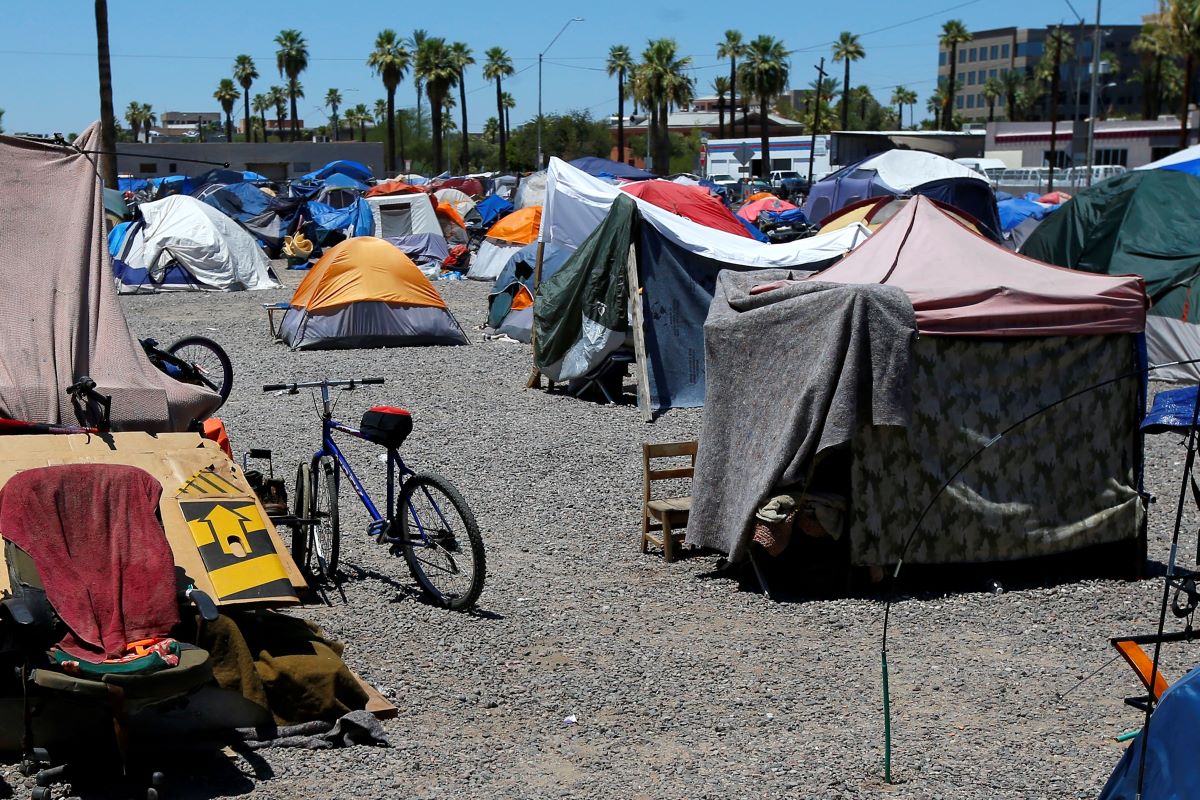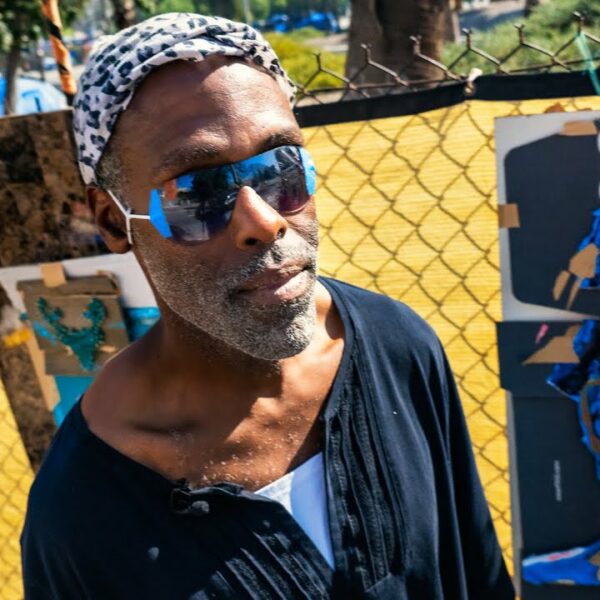Advocates and some lawmakers in the Arizona legislature are speaking out against a pair of Republican-led bills that seek to increase penalties for people who sleep in homeless encampments.
One bill from Sen. John Kavanagh, a Republican from Fountain Hills, would prohibit people from asking for donations or food on public sidewalks. It would also make these acts a misdemeanor crime that carries the possibility of up to six months in jail if a person violated the law three or more times.
The bill was introduced just as the Arizona legislative session began heating up in mid-January. However, it was pulled from discussion during a hearing before the Senate Rules Committee in late January after Sen. David Farnsworth, a Republican from Mesa, testified about his experience in homelessness and how the bill would have made it harder for him to survive.
“The homeless problem is a big problem that we need to address,” Farnsworth said during the hearing. “I’m not sure this is the way to do it. In fact, I’m not comfortable in addressing it this way.’’
Lisa Bivens, an attorney with the Arizona Attorneys for Criminal Justice organization, a nonprofit advocacy group, told the committee that the bill is the “wrong approach” to meaningfully solve Arizona’s growing rate of homelessness.
“This law makes it a crime to have needs and to peacefully ask for help,” Bivens told the committee. “We all have needs, and we all need help sometimes. If we enact this law, we chase away people who may be in need. This law does not fix any problem, it does not promote any purpose.”
Another proposal, Senate Concurrent Resolution 1011, would require the Arizona Department of Housing to allocate funds to create safe parking sites and sanctioned encampment areas where people experiencing homelessness can stay.
However, the resolution would also prohibit cities or towns from receiving funding from the ADOH if they have a higher per capita rate of homelessness than the statewide average. It is modeled after a template bill authored by the Cicero Institute, a nonprofit that has worked with several cities and towns nationwide to limit places where homeless people can reside.
Eric Tars, the legal director for the National Homelessness Law Center, a nonprofit advocacy firm based in Washington D.C., described the attempts to further criminalize homelessness in Arizona as “a state-created danger” for people who are without housing, according to a letter the organization sent leaders of the Arizona legislature on February 8.
Tars took issue with the bill’s tangential impacts, which could limit funding for new supportive housing developments in places where rates of homelessness continue to increase, like Phoenix and Tucson. He argued that the bill is also “inherently discriminatory” in requiring homeless people to reside in specific areas of the city. It could “exacerbate discriminatory gaps in arrests, incarceration, fines and fees, and other collateral consequences of criminal justice involvement.”
“Simply put, this provides state and local actors cover to act with total disregard for the rights of Arizona’s most vulnerable citizens, with zero accountability, while undermining the very programs that have demonstrated real and proven success in reducing homelessness,” Tars wrote.
The bills come as rates of homelessness are surging across Arizona.
According to the latest one-night count figures, Arizona has seen its homeless population grow 24% since 2020. Major cities like Phoenix and Tucson have seen their homeless populations grow by 33% and 68%, respectively. Meanwhile, more than two-thirds of people experiencing homelessness in Tucson are unsheltered compared to 56% of Phoenix’s homeless who sleep on the streets.
Meanwhile, Arizona currently has laws on its books that prohibit homeless people from obstructing sidewalks, loitering, or sharing food in public. These laws not only make it a crime for homeless people to perform many tasks necessary to live but could also subject them to legal penalties that could make it harder for them to find housing in the future.
But Republicans in Arizona seem content to increase the number of laws that criminalize homelessness. For example, Senate Bill 1413, introduced by Tucson Republican Sen. Justine Wadsack and Rep. Rachel Jones, would require governments to move homeless encampments once they are reported.
How You Can Help
The pandemic proved that we need to rethink housing in the United States. It also showed that providing targeted support for different groups experiencing homelessness is one of the most effective ways to end homelessness for good.
That’s why we need you to contact your officials and representatives. Tell them you support converting unused properties into supportive or permanent housing programs. They have proven effective at keeping formerly homeless people housed, which is the first step to ending homelessness.













